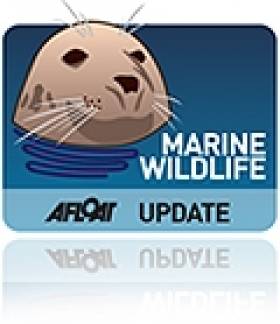Displaying items by tag: Monty Halls
New Pontoon Key to Saving Stranded Whales, Dolphins
A new pontoon intended to refloat marine animals such as beached whales and dolphins along the Atlantic seaboard was demonstrated at the weekend ahead of the Galway Science & Technology Festival.
The Irish Times reports that divers, scientists and local volunteers were among those participating in the training exercise on Gurteen beach, near Roundstone, which involved rescuing and refloating a dummy pilot whale.
Dr Simon Berrow of the Irish Whale and Dolphin Group (IWDG) which ran the exercise said he hoped other coastal communities would follow the example with their own training sessions, given the growing number of strandings along Ireland's west coast.
The new pontoon - which was put on display in the festival exhibition at NUI Galway on Sunday - was purchased with funds raised by the local community and a BBC television team producing the latest series by popular adventurer Monty Halls.
Monty Halls Gives Talk on 'Capturing Giants'
Renowned diver Monty Halls is set to present a public talk on his marine animal work filming whales, sharks and dolphins around the world tomorrow night (7 October).
Halls, who has been in Ireland since April making his latest documentary series for the BBC, has been assisting the Irish Whale and Dolphin group (IWDG) with its research on whales, dolphins and basking sharks in Irish waters.
The diver, filmmaker and former Royal Marine, who is also a popular motivational speaker and performance coach, will talk on his experiences filming and diving with marine mammals around the world, and will surely provide some great entertainment.
The talk, part of the Tales of the Whales Lecture Series organised by the IWDG and the Galway-Mayo Institute of Technology (GMIT), begins at 8pm on Thursday 7 October in Lecture Room 1000 at GMIT, Dublin Road, Galway. The event is free and all are welcome to attend.





























































